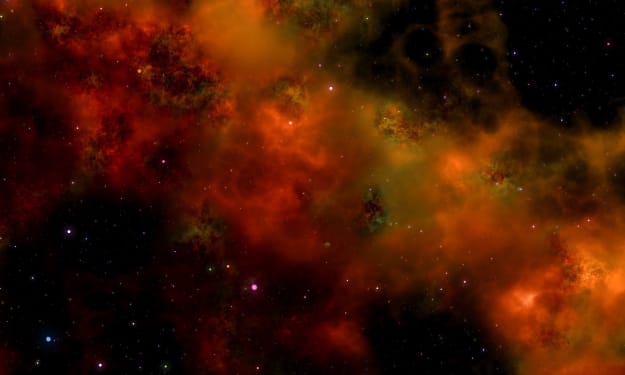Virtual/Augmented Reality (VAR) and the Simulation Hypothesis
What’s the Point of Virtual Reality if Reality is Virtual?

A day does not go by that another article is not published purporting to explain why virtual/augmented reality (VAR) systems/software/applications have failed to spark much interest in the general population. Adoption rates have been way slower than many had predicted and widespread adoption seems decades away if it is ever going to happen. Many theories have been suggested and while they each have some element of truth to them they all fail to provide a completely satisfactory account of the issue. I have been puzzling over this problem in my head myself for months now. Given the bulk of the populations seemingly endless fascination with all things tech and the media’s incessant hyping of VAR as the next big thing you would think VAR systems would have exploded in popularity by now. We should already be in the price war phase with knock off brands flooding the market and VR gaming addicts passing out in neighborhood VR arcades from two week binges of non stop VR MMRPG gaming sessions. Meanwhile AR should be an option in all new cars sold and a standard feature on new smart phones. To date, none of that has come to pass.
One of the most attractive features of any new technology is its novelty. Of course usefulness, ease of use, reliability, etc. are all important but for the average joe on the street to take a chance on a new technology usually requires something more than the basics. In fact I would argue that those basics have become the minimum standard of entry to the game. They are a necessary but not sufficient condition to even be considered as an option by most. There are just too many options for software/hardware that essentially do the same things, deliver the same end result if you will. The one thing which is virtually (no pun intended) guaranteed to spark interest and hasten adoption is novelty. This is where augmented and especially virtual reality would seem to have a massive edge over any other new technology entering the market today. However, consider if the simulation hypothesis, specifically SH1 (ourselves and the universe are 100% simulated) is true. In that case we are already living in a virtual reality. In fact we ourselves are virtual constructs living inside this virtual reality. Therefore virtual reality systems would be one of the least novel things one could imagine for they would simply represent another “form” of what we think of as actual reality. There is zero novelty in that and one could argue that they would be less interesting then our actual/virtual reality because as virtual constructs ourselves we would necessarily be less adept at creating real seeming simulations (virtual worlds) than the simulators who created us. Why would anyone want to play/live/visit a virtual world created by inferior virtual beings when they could continue to play/live/visit a virtual world (our current one) created by superior beings?
I see so many answers to that but I am tired and need sleep. However, since I am still under the 600 word count minimum I now present...
Artificial Intelligence (AI) Versus Virtual Reality (VR)
A Head to Head Comparison for the Masses
As a public service I am pleased to present to you a quick primer on the major similarities and differences between AI and VR. I do this out of the kindness of my heart and ask for no compensation other than your attention.
Similarities:
Going to happen/be huge next week, next month, next year
Fake degrees available majoring in each
Investors have lost billions sinking cash into ridiculous schemes featuring them
Investors have made billions sinking cash into ridiculous schemes featuring them
Are hypetastic!
Differences:
One is a real actually existing thing (VR), the other is not (AI)
One is responsible for the singularity (AI), the other is responsible for the single people (VR)
One will save and/or destroy the world (AI), the other will destroy your marriage (VR)
One lives in your computer (AI), the other is a computer you live in (VR)
One uses artificial neural networks to mimic the activity of the human brain based on unproven and oversimplified theories of how it works and learns, while simultaneously ignoring the fact that many competing theories that are just as likely to be correct exist (AI), the other uses standard hardware and software to trick the brain into ignoring the fact that it is currently inside the skull of a very foolish looking human who is totally oblivious to what is happening around them (VR).
One pretends be alive (AI), the other makes life pretend (VR)
One has a similarly named competitive technology that almost, but not quite, lives up to the potential of the original (VR — augmented reality/AR). the other has many differently named offspring that almost, but not quite, mask the fact that the original has very little chance of happening in the next 500 years (AI — machine learning, deep learning, deep intelligence, etc.)
One probably cannot happen without a body (AI), the other definitely cannot (VR)
About the Creator
Everyday Junglist
Practicing mage of the natural sciences (Ph.D. micro/mol bio), Thought middle manager, Everyday Junglist, Boulderer, Cat lover, No tie shoelace user, Humorist, Argan oil aficionado. Occasional LinkedIn & Facebook user
Enjoyed the story? Support the Creator.
Subscribe for free to receive all their stories in your feed. You could also pledge your support or give them a one-off tip, letting them know you appreciate their work.






Comments
There are no comments for this story
Be the first to respond and start the conversation.